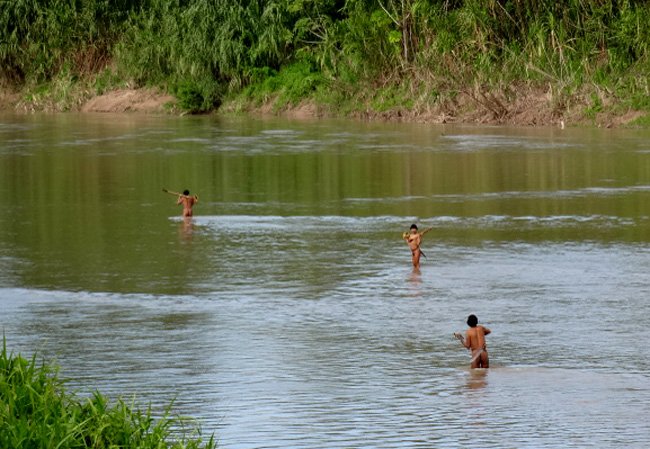Public Note #21 – In repudiation of the constitutional loophole and the attacks against Indigenous people
22 Jul 2020, 12:31
The Dom Paulo Evaristo Arns Commission for the Defense of Human Rights – the Arns Commission – goes public to express its indignation and great concern regarding the omission and attacks by the Brazilian government on Indigenous peoples and requests the Judiciary branch to take measures to ensure their protection.
The removal of all invaders from Indigenous lands is an urgent duty to prevent the further spreading of COVID-19. So far, the Executive branch has not complied with the decision taken by the Regional Federal Court of the 1st Region (Tribunal Regional Federal da 1ª Região – TRF1, in Portuguese) on July 3rd, to plan and execute the expulsion of gold prospectors (“garimpeiros”) from the Yanomami area.
There is a great movement in Brazil for the appropriation of public lands, especially in the Amazon. Various strategies are being attempted, from provisional measures to sneaky infralegal measures. To combat them, it is imperative to extinguish the blatantly unconstitutional Normative Instruction No. 9 from the National Indigenous Foundation (Fundação Nacional do Índio – Funai, in Portuguese), which seeks to exempt it from its responsibilities regarding Indigenous lands that have not yet been certified.
This normative instruction led to the suppression of at least 70 Indigenous lands already officially delimited or even recognized by the Minister of Justice from the Land Management System (Sistema de Gestão Fundiária – Sigef, in Portuguese) of the National Institute for Colonization and Agrarian Reform (Instituto Nacional de Colonização e Reforma Agrária – Incra, in Portuguese). With this measure, Incra is authorized to grant certification to occupations affecting these Indigenous lands, which is unconstitutional.
The Special Secretariat for Indigenous Health (Sesai) and Funai, despite having huge emergency budgets, have so far not managed to send the necessary resources to the populations that need them. The levels of accomplishment and transparency of these governmental bodies leave much to be desired.
The Indigenous peoples and organizations that have been giving examples of solidarity, seriousness and responsibility to their communities deserve applause. By mobilizing help from civil society and the Federal Prosecutor’s Office, they have acted effectively, which shows how much was lost when the government emptied and undermined spaces for social participation in 2019.
While Sesai, so far, has not yet presented a plan with concrete actions to face the pandemic, two Indigenous initiatives were the ones responsible for submitting emergency projects that can address the risks faced by Indigenous peoples and isolated Indigenous peoples – the most vulnerable among the vulnerable – through the Legislative and Judiciary branches, respectively.
The first was Draft Bill (Projeto de Lei – PL, in Portuguese) No. 1142, led by deputy Joênia Wapichana and a parliamentary front. It must be noted that it also applied to quilombolas and other traditional communities. PL 1142 was approved in both houses of Congress, but the President of the Republic, when sanctioning it, mutilated it with unconceivable vetoes, which must be overturned.
The second initiative was Claim of Non-Compliance with a Fundamental Precept (Arguição de Descumprimento de Preceito Fundamental – ADPF, in Portuguese) No. 709, led by the Articulation of the Indigenous Peoples of Brazil (Articulação dos Povos Indígenas do Brasil – Apib, in Portuguese) and by several political parties, and approved by the Justice of the Federal Supreme Court, Luís Roberto Barroso. It must be complied with. However, the first meeting of the crisis cabinet with Indigenous participation, imposed by the STF, on July 17, was a fiasco. There seems to be no possibility for dialogue between civil society and the Executive branch.
The Federal Supreme Court has shown itself to be a determined defender of the Constitution and the rights and principles it protects, in face of the systematic attacks that have been inflicted on it in recent times. It is also the one who has put the constitutional rights of Indigenous peoples into effect.
Therefore, it is essential and urgent that the precautionary measure and the merits of Extraordinary Appeal (Recurso Extraordinário – RE, in Portuguese) No. 1 017 365 must be taken to the plenary, so that the aberration that is the “time frame” theory is finally overturned. We appeal to the President of the Supreme Court to address this matter with due urgency.
Photo: Funai